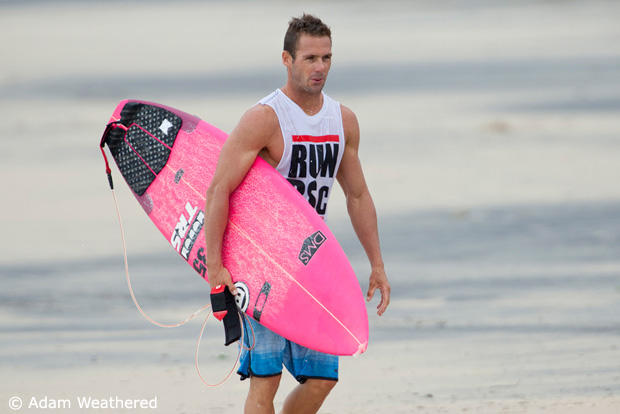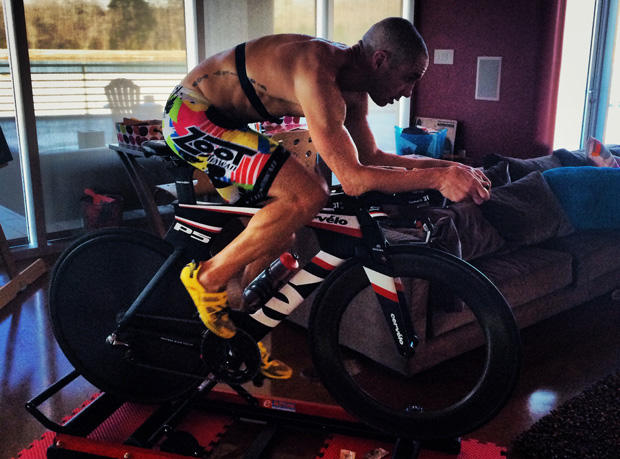The brand new Shane Niemeyer
Shane Niemeyer was a regular customer in prisons, addicted to drugs and suicidal, but triathlon has turned the life of this man around completely. He recently wrote a book called The Hurt Artist and you may bump into this hurt artist especially if you race in Colorado.
Slowtwitch: Thanks for your time Shane.
Shane Niemeyer: No way – thank you and everyone out there. It’s great to be here with you.
ST: Before your adventures in triathlon you were in prison and tried to commit suicide. I believe you saw the light after one such episode. But how long of a period of destructive behavior did you go through.
Shane: I started drinking and partying daily around 15 years of age, I think that made me a sophomore in high school. From that time until I was about 28 years old it was a bad scene for me. Like most who travel down that dark alley, I started drinking and smoking pot and eventually experimenting with hard drugs which precipitated a steep decline in my functioning as a person. As time went on I slipped further and further into the abyss.
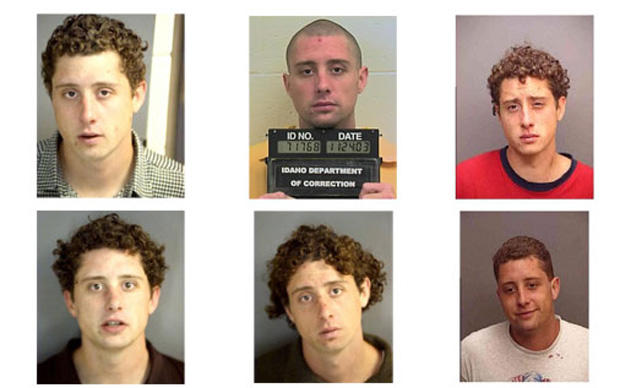
ST: What got the drug use and that lifestyle started?
Shane: In retrospect it’s hard to really pin it down. It was probably a confluence of events. Drinking and smoking pot can be a rite of passage for many high school kids. I guess that’s how it started with me, but it grabbed me pretty quick. Part of my problem was lack of self-worth and trying to fit in with a new peer group in a new place. Combine all that with an utter lack of self-control and no boundaries and you have a recipe for the true disaster that my life became.
ST: What about your family?
Shane: I pretty much turned on my family when I lost my head as an adolescent. I put them in an untenable position. Legally, I was under their jurisdiction, but I became so unpredictable that they couldn’t have me under their roof. They tried to reach me, but I wasn’t accessible. I was on my own trip. I started out in locked psychiatric unit at 15 or 16 while everyone tried to get a handle on me. They tried to ground me, and take away the car, but short of locking me in the house I was beyond their control. By 16 I was out of the house and bouncing around town. That’s where things really started to deteriorate, and they just became worse thereafter. Looking back I was a horrible nightmare.
ST: Have you made up?
Shane: We have made up. My dad passed away 4 years ago. We were able to patch things up before he left us. I was very thankful to have been able to spend time with him. When we found out he was sick with pancreatic cancer I was allowed to transfer my parole from Idaho to Colorado. The illness created a sense of urgency in me to spend some time and try and make things right between us all. It took a while until everyone was at ease and confident that I was on the right path in life. His passing was tough on me. My mom is great. She is the best person I have ever known. It’s pretty hard to think about all the shit that I put them through. It’s amazing that they stood by me through it all. Again, I was lucky there too.
ST: Are you still in touch with some of the folks you were associated with back then?
Shane: I am in touch with a few people across the country that I knew back then. Many of them are dead now. Some are in prison. Obviously, not everyone I associated with was an addict or a drunk, so I still talk to a few of them, particularly after the book published I had quite a few reach out and reconnect.
ST: Does it feel somewhat like Groundhog Day when you have to talk about this subject again and again?
Shane: Not really. I actually don’t talk about it all that much. Life is so different now, that the past seems like another life. Most of my conversations revolve around everything but those days. In many ways it’s good to stir up the past a bit. It’s a good reminder of where I came from. Looking back it’s still hard for me to wrap my head around the whole mess.
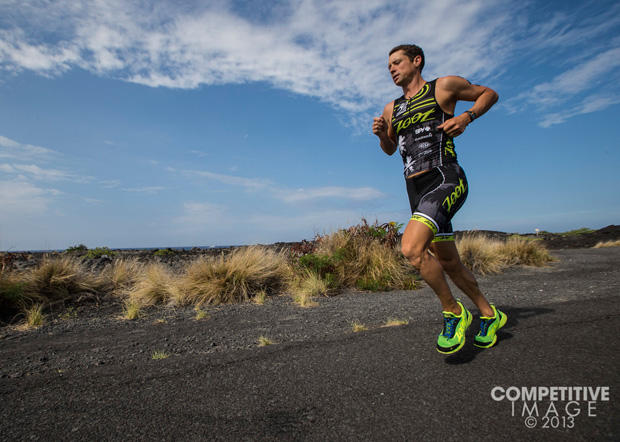
ST: So would you consider writing the book, and doing interviews to be somewhat cathartic?
Shane: Yes, the process of writing the book was very cathartic. Gary (my writer) asked the most penetrating questions, questions that I wouldn’t have asked myself. It’s clear that his objectivity was crucial to the telling of “my story”. It forced me to look at parts of my life which I had just shoved in a corner and tried to move away from. When I started to pull myself together in prison I just wanted to look down the road and close the door on the skeletons in my closet, but on some level, I had been dragging all that trash with me all these years. It forced me to examine how traumatic and real those years had been. There were times after our interviews or editing sessions that I was just wiped out and hollow for days – a pretty crazy experience. The interviews have been more fun and relaxed than the book process. They feel like more of an honor or privilege than anything. The whole thing has been pretty surreal, and humbling. I have been very lucky in life, that’s for sure. Lucky to be here with ST.
ST: You are too kind. I think the story goes that you read a story about the Ironman World Championships while in prison and that you started to work out in prison after that. I have never been to prison, but I can’t really imagine getting ready for a triathlon behind prison walls.
Shane: Yes. There was an article in an Outside magazine. It was the only thing I had available to read, besides the King James version of the Bible, which I really didn’t want to get into in my state. I was in solitary confinement. I was pretty desperate to latch on to something, and that article provided me with an objective when I had none. It was the beginning of the formation of a personal ideal. Long ago I had lost all sense of direction or vision of who I wanted to become or what I wanted to do with my life. I had become a junkie and a drunk. I remember thinking how crazy it seemed to me that people swam, rode and ran that far in one day. It blew my mind. I figured the pursuit of Ironman, just trying to finish a race would go a long way towards changing my circumstance in almost every way.
But you are right, there are no bikes or pools in prison, at least where I was. Running stairs when I had access was about as close as I came to anything resembling sport specific training. Everything else was strength training prison style. I spent all my time either reading, writing or working out. As the days turned into months. My first goal was just to get back into some kind of shape and lose some weight.
ST: How much did you weigh then, and where are you now?
Shane: I topped out at 215 lbs. It was embarrassing at first, I was such a wreck from smoking, drinking, drugging and being overweight that the medical staff gave me a release for a bottom bunk since it was a liability for me to heft my fat ass onto the top bunk lest I injure myself.
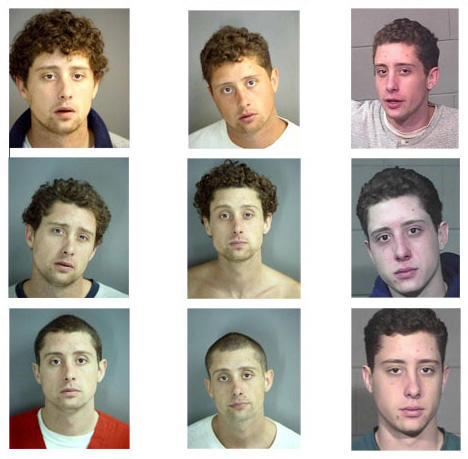
ST: Were you also in rehab while in prison?
Shane: Not in rehab per se. There was some programming, which was mandated and consisted of 6 or 8 weeks’ worth of classes two times per week. I wouldn’t really call it rehab, at least not like any of the ones I had been in on the streets. The class was facilitated by a dull and seemingly burnt out drug counselor but it wasn’t intensive or organized like most facilities in more clinical settings.
ST: But did it help?
Shane: I don’t think it helped me. By that point, pretty self-directed and getting much more out of my own “blueprint” for change than I was from the prison’s programming. I do think that it had the potential to help other inmates by expanding their frame of reference, though none of them ever seemed to take it seriously while I was there. We tend to forget that rehabilitation or change cannot be compulsory, instead, it must come from within. That’s the central dilemma in the American criminal justice system. As a society, we want to emphasize rehabilitation over retribution/punishment but we forget that we cannot rehabilitate any individual unless they are ready and highly motivated.
ST: Once you got out, what was the first thing you did?
Shane: I walked to a bike shop and talked my way into a deal on a bike from some great guys at Bob’s Bikes in Boise, Idaho. Those guys gave me a huge leg up when I really needed a hand. I couldn’t drive for a very long time, so I needed a bike to commute on and to train with. From there I started looking for a job… any job.
ST: What was your first job?
Shane: My first job out of prison was washing dishes. Actually, I had 2 dishwashing jobs for the first two months until I was able to get my foot in the door waiting tables and eventually working at a local gym where I would later become a strength and conditioning coach.
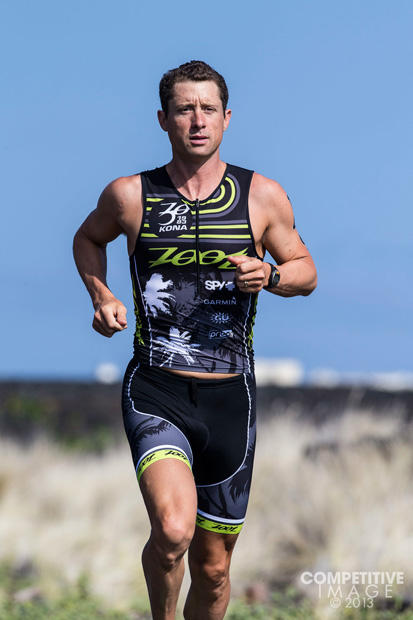
ST: How has Boulder been treating you? And what other places would you consider?
Shane: Boulder has been swell. It’s a special place on the face of this planet. I can’t imagine a better place to live, unless I could leave for 2-3 months during winter. I love it here. I have lived all over the country and Boulder is hard to beat. I really liked Boise. I am sure there are plenty of great places throughout the mountain west that would be great too. I really don’t have too many requirements other than access to mountains or the sea. If I make it to old age, I can see myself kicking back somewhere coastal and becoming a waterman spending much of my time in or around the sea.
ST: You mentioned escaping in the winter. Which places sound enticing when it is cold in Boulder?
Shane: Mandy has some family near Clermont, Florida so that would be an option. I also have a very good buddy in Scottsdale that we could go harass. But in a perfect world we would roll like the all the Aussies who head back down under for the winter – that would be pretty sweet.
ST: When did you actually move to Boulder?
Shane: I moved here in 2007. It was like coming home after a long wandering. I was born just north of Boulder in Loveland, Co.
ST: How did you meet Mandy?
Shane: Mandy came to Boulder in 2009 for a training camp with my good friend and mentor Joanna Zeiger. Joanna had taken me under her wing when I first moved here. Since I trained with Joanna 4-5 times per week, I met Mandy by default when she came to train up high just before taking her pro card. As soon as I met her that was it for me.
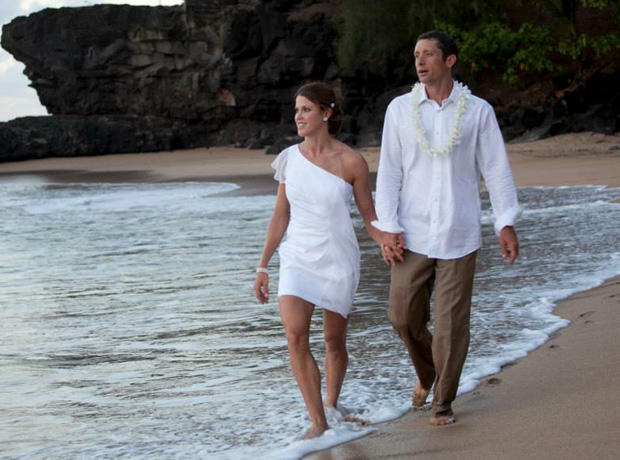
ST: I think your first 70.3 race was in March of 2006 and you recorded a very respectable 4:48:44. Had you had help back in Boise to get ready?
Shane: Actually that was my 3rd race. I got out of prison at the beginning of 2005 and raced the Pacific Crest half-ironman distance race in Oregon. It was a mess. I think I went 5:10 or something like that. I had no idea that the human body could cramp like that. When I finally made it to the finish I was crippled. At the time it was horribly demoralizing to think about racing an Ironman. I had my first on the books 3 months’ time from that race, and that half was more than I could handle. I had no clue what I had gotten myself into.
ST: Was that the start of a new addiction?
Shane: I don’t know. I have a tough time with the word addiction. The way we define success in this country with any endeavor would probably meet the diagnostic criteria for addiction. Most of my clients and friends who are senior level executives at multi-national companies could be considered workaholics or obsessive. Certainly, many of the athletes I know, myself included, are very, very one dimensional and definitively on the obsessive-compulsive side of the spectrum. I guess the short and honest answer would be, yes. There are times when training and racing come before almost anything else. The caveat to that would be that I am much more centered and grounded now than I was then, but it certainly began by substituting one compulsion for another.
ST: Along those lines, how much time do you spend training these days?
Shane: My average week ranges anywhere between 16-25 hours of training.
ST: Have you done any races this year, or are you too busy with the book tour and interviews?
Shane: I raced New Orleans 70.3 and pulled out an AG win somehow. Afterwards I started IM Texas and Coeur d’Alene, both with epic fails. So now I am doing a bit of soul searching about the rest of the season to make sure that my actions are in alignment with my ideals and that I am not chasing races.
ST: What is next for you?
Shane: That’s always the central question in life isn’t it? I imagine I will start speaking more and more. Certainly I will race Ironman for 2 or 3 more years keying on Kona and trying to race at my potential there in particular. There are a few things left in the sport that I would like to achieve so I will continue to push for those points on the horizon. I know Mandy wants to have kids, so that will certainly change things when the time comes. For now, I just want to keep training, racing and most importantly, becoming a better person than I was, hopefully somehow making a positive impact in the world…to somebody… somewhere.
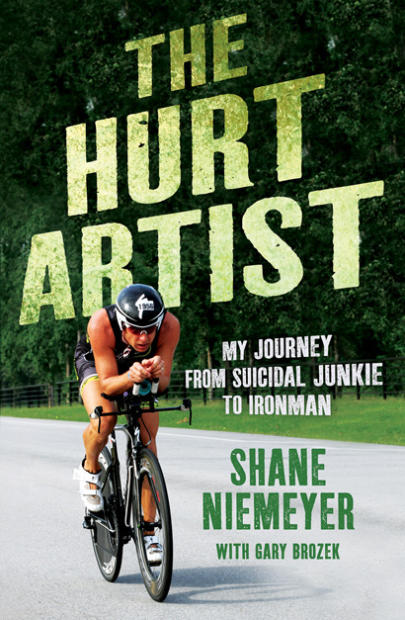
ST: Did we miss anything?
Shane: No, I just hope I didn’t run off on too many tangents. This is a good chance for me to thank ST and the audience. It’s my favorite resource for all things triathlon.


